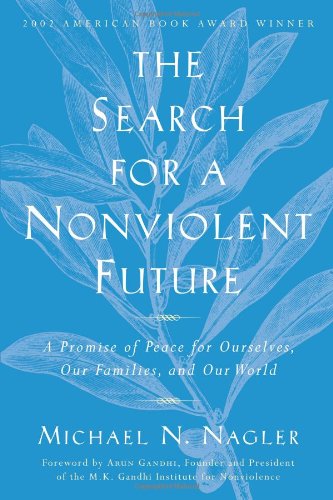“The cause is great, the remedy is equally great; let us prove worthy of them both.” ~ Gandhi, speech made at Madras, March 18, 1919
It’s not enough if you have a great cause; the means must also be great. Why? Because the means determine the end. Nonviolence is an ever-developing process, not an end goal. More than just a tool for combating specific injustices, it is “a remedy,” as Gandhi puts it, a way of healing ourselves, our society and our world. But the question remains: how exactly do we prove ourselves worthy of a great cause and the full power of a great means? Sufi mystic Ansari of Herat of the 11th century said it this way, “Watch vigilantly the state of thine own mind. Love of God begins in harmlessness.”
Thanks for sharing a comment below.
About Daily Metta
 Stephanie Van Hook, the Metta Center’s executive director, launched Daily Metta in 2015 as a way to share Gandhi’s spiritual wisdom and experiments with nonviolence.
Stephanie Van Hook, the Metta Center’s executive director, launched Daily Metta in 2015 as a way to share Gandhi’s spiritual wisdom and experiments with nonviolence.
Our 2016 Daily Metta continues with Gandhi on weekdays. On weekends, we share videos that complement Michael Nagler’s award-winning book, The Search for a Nonviolent Future: A Promise of Peace for Ourselves, Our Families, and Our World. To help readers engage with the book more deeply, the Metta Center offers a free PDF study guide.
Enjoy more Daily Metta: See the archives
Get Daily Metta by email: Subscribe









In my most recent English language class with Muslim and Christian students in Indonesia, we were just discussing this philosophy of Gandhi’s, that the means were equally as important as the cause. No one illustrates in their personal life this ideal integration between being and doing quite like Gandhi did.
I want to thank Michael Nagler–your writings have greatly influenced me. As a novelist, I’ve just completed a book about facing an ISIS invasion with non-violence, with both Muslims and Christians working together to overcome their fear with love and faith that even terrorists can change. Thank you for your passionate pursuit of peace.